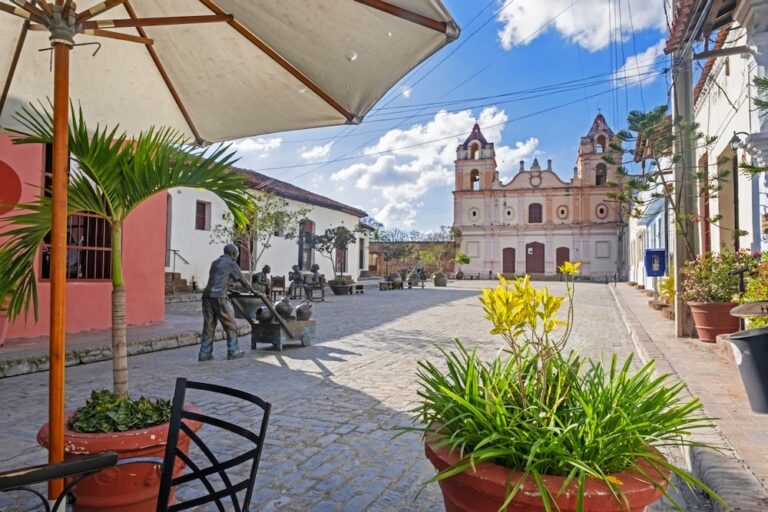Digital media by no means supplant action in the physical world, but when used wisely by courageous citizen journalists such as Yoani Sánchez, they can serve as a vital tool in the push to uphold universal human rights.
By Ashley Greco-Stoner – Senior Research Assistant, Freedom on the Net
March 21 marked the end of the New York leg of Cuban blogger and activist Yoani Sánchez’s highly publicized international tour. Since beginning the 80-day, 12-country whirlwind of speaking engagements in February, Sánchez, whose blog Generación Y is now translated into nearly 20 languages, has been met with equal measures of protest and warmth in Brazil, Mexico, Europe, and the United States. Arguably the most influential blogger writing within Cuba, Sánchez was denied an exit visa 21 times over the last five years, but she finally received permission to leave the island last month under a broader government initiative to loosen travel restrictions.
While Sánchez’s success in securing a passport after years of formal requests is significant, it would be a mistake to view the shift in exit requirements—or the recent activation of a highly anticipated fiber-optic cable (ALBA-1) to enhance the island’s internet connectivity—as evidence of a sea change in the regime’s attitude toward civil liberties such as freedom of movement and access to information.
According to Cuba’s National Statistics Office, internet penetration rates hover around 23.2 percent, but that figure primarily reflects access to the government-controlled intranet. Experts estimate that only about 5 percent of Cubans can regularly access the internet proper, often via black-market channels. Internet access is further complicated by weak infrastructure, prohibitively high costs, and exceptionally slow connectivity; to date the high-speed ALBA-1 cable has been linked only to government offices. Advanced web applications are largely unavailable. Access to Twitter, for instance, is mediated by telephone and costs $1.20 per message—an exorbitant sum given the average monthly salary of $16. Cuban news sites hosted overseas are blocked, and Cuban bloggers and journalists who manage to publish their work are still routinely subject to arbitrary detentions. These realities cement Cuba’s standing as one of the world’s most repressive internet environments.
Cuba’s repressive policy on freedom of expression extends beyond the country’s borders. Activists such as Sánchez have faced organized protests by government sympathizers at every venue they have visited abroad. In New York, the Cuban mission to the United Nations has been among Sánchez’s loudest detractors, condemning her speeches as “an attack on Cuba.”
During a panel held last week at the City University of New York (CUNY) Graduate Center in Manhattan, Sánchez and other prominent Cuban bloggers, including Ernesto Hernández Busto and Orlando L. Pardo Lazo, discussed the realities of life in Cuba along with the potential of the blogosphere, social media, and online citizen journalism to effect positive change on the ground. Opinions among the panelists differed regarding the scope of the internet’s promise, but all predicted a continuing role for the medium in Cuban civil society activism.
Sánchez did not respond directly to a critic’s vitriolic pronouncement that women should be denied both physical and digital forums for speech. Instead, she explained that in a culture often characterized by machismo, her gender was initially an asset. By focusing solely on the threat her activist husband might pose to the regime, authorities grossly underestimated Sánchez’s own ability to make an impact, allowing her to gain influence before the government began to step in.
Despite the Cuban authorities’ accusations that she displays a pro-American bias, Sánchez recently called for an end to the U.S. embargo. Emphasizing the need for development and infrastructure aid from democratic sources, she pointed out that Cuba’s two main benefactors at present are China and Venezuela. As long as the United States is disengaged, the influence of these authoritarian donors will act as a disincentive to democratization.
Digital media have irrevocably altered the geographies of activism in closed environments such as Cuba, facilitating connections to an international audience. Speaking to this trend, Sánchez praised Twitter for its capacity to bridge the gap between Cuba and the outside world.
Ironically, the same phenomenon has provided Cubans living on the island with access to local news. During the CUNY panel, Hernández likened the circuitous trajectory of information in Cuba to that of a boomerang, explaining that news often fails to penetrate the tightly controlled information landscape without first being transmitted abroad and then relayed back by activists overseas. In this sense, he argued, the Cuban blogosphere and civil society activism are best understood as two components of a single organism.
Fellow panelist Pardo expressed concern that online media are too disconnected from offline activism and cannot live up to their attributed potential. But in keeping with Hernández’s assertion that digital and physical activism are symbiotic, Sánchez highlighted the need to view the internet as an incubator for ideas that can be released into the physical world once they have reached maturity.
Digital media by no means supplant action in the physical world, but when used wisely by courageous citizen journalists such as Yoani Sánchez, they can serve as a vital tool in the push to uphold universal human rights.


